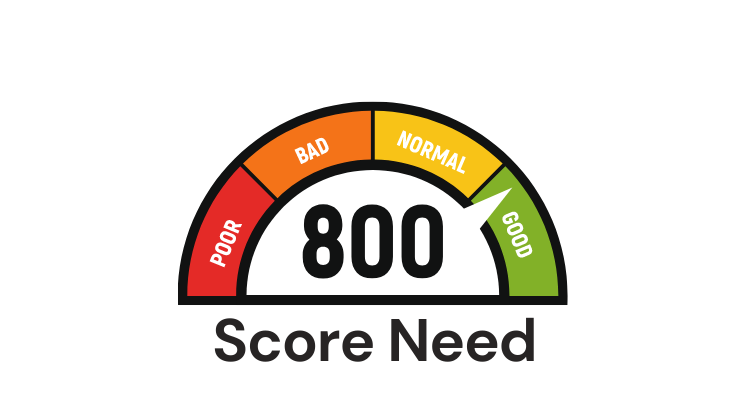
When you’re a keen traveler, whether for business or leisure, having a credit card that rewards your wanderlust is a game-changer. And when it comes to travel rewards cards, one name reigns supreme: Chase Sapphire. Now, you might be asking, “What’s the magic credit score needed for Chase Sapphire that can open up this treasure trove of travel benefits?” Well, fasten your seatbelts, and let’s embark on a journey to find out!
The Sapphire Stars: Preferred and Reserve
Two Chase Sapphire cards are making waves in the credit card ocean: the Chase Sapphire Preferred® Card and the Chase Sapphire Reserve®. Both offer generous perks and rewards for frequent travelers. However, the credit score needed for Chase Sapphire cards varies depending on the version you’re applying for.
Preferred or Reserved: How Your Credit Score Decides
Before you get your heart set on one of these shiny Sapphire cards, it’s essential to understand that your credit score plays a crucial role in your application. Based on industry assumptions, applicants should aim for a credit score of 700 or more for the Chase Sapphire Preferred® Card. This card requires at least a good credit rating for approval, and the higher your credit score, the better your approval odds.
As for the Chase Sapphire Reserve®, it’s like the VIP lounge of credit cards. It’s generally recommended for those with excellent credit. With a higher annual fee and more luxurious perks, it’s a bit more exclusive.
The FICO Factor: Understanding Your Credit Score
Credit scores, especially FICO scores, are the yardsticks that banks use to measure your creditworthiness. They range from 300 to 850, with higher scores indicating a better likelihood of paying off your balance promptly.
Here’s a rough breakdown of FICO scores:
- Very Poor: 300 to 579
- Fair: 580 to 669
- Good: 670 to 739
- Very Good: 740 to 799
- Exceptional: 800 to 850
For the Chase Sapphire cards, a “Good” to “Exceptional” score is your ticket to approval. However, remember that these are guidelines. Other factors like income, spending habits, and existing debt also play significant roles.
Beyond the Numbers: Other Approval Factors
While the credit score needed for Chase Sapphire is important, card issuers also consider other factors. These include your payment history, credit utilization rate, the length of your credit history, the number of open accounts, and recent credit inquiries. They also look at your employment status, monthly housing payments, and even your age.
For instance, Chase has a strict policy known as the 5/24 rule. If you’ve opened five or more new credit cards in the last 24 months (from any bank), your Chase Sapphire application will likely be declined.
Rejection Recovery: What If You Don’t Make the Cut?
If your application is rejected, don’t despair. You can always call Chase’s reconsideration line and provide more details or explanations about your application. Sometimes, a manual review can turn the tide in your favor.
Alternatively, work on improving your credit score. Pay down your credit card balances, make all payments on time, and minimize new credit inquiries. Over time, your score will improve, and you might just be able to unlock that coveted Chase Sapphire card.
The Final Boarding Call
The Chase Sapphire cards offer a world of travel rewards, but they require a key: a good credit score. If you’re an avid traveler with a credit score in the high 600s or above, the Chase Sapphire Preferred® Card or Chase Sapphire Reserve® could be your passport to a world of travel benefits.
Just remember, your credit score isn’t the only factor. Meeting the credit score needed for Chase Sapphire is a great start, but understanding and managing the other factors can help you successfully navigate the journey to your dream travel card.
Application Link: Chase Sapphire Preferred Card
So, are you ready to take off with Chase Sapphire?
